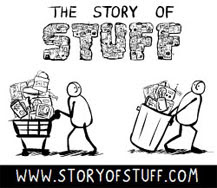 By the end of the first paragraph I could tell this was a Leif Enger book. The voice coming out of the pages reminds me so much of the narrator of Peace Like a River. He even uses the word "pard", which I think came up several times in the cowboy story in that novel as well. And did this sound familiar to any of you who read Enger's first novel:
By the end of the first paragraph I could tell this was a Leif Enger book. The voice coming out of the pages reminds me so much of the narrator of Peace Like a River. He even uses the word "pard", which I think came up several times in the cowboy story in that novel as well. And did this sound familiar to any of you who read Enger's first novel:This [novel] was about a boy who shoots two intruders in the dead of night and straightaway flees the Law. I had it in mind that the boy become a dangerous western hero along the pattern of Tom Horn. His would be a life of wild horses, of slender escapes, of comrades laid in shallow graves!
I love Monte's descriptions of himself and simultaneous jabs at other authors who may indeed be living "in a hospital for the insane or on a tramp steamer or in Madrid", and therefore consider themselves more literary.
Common blots aside, I have none of the usual Big Artillery: I am not penniless, brilliant, or an orphan; have never been to war, suffered starvation or lashed myself to a mast.
It reminded me of that line in "Singin' in the Rain" where, upon learning that he is fired, Cosmo, the pianist, replies, "Oh good. Now I can start suffering and go out and write that symphony."
I also already like the relationship between father and son that is apparent in this novel as well. The name Redstart is certainly strange but I'm betting it will have a significance later on. It almost seems like an Indian name to me. We'll see if being named after a bird has any significance in the boy's life or not.
Why do you think Monte was so eager to talk to the man in the row boat? A complete stranger. Would you ever stop a complete stranger and let him in to your house? Or have supper with a complete stranger that your son brought home with him...a grown man at that? I can't say that I would ever consider such a thing, but maybe that's why I don't have a very adventurous life.
I was surprised to find that Monte had sold, and is still selling, a successful novel. He describes himself as such a...well...loser. Why was Martin Bligh such a success and why can't Monte repeat the process with a second book? I'm assuming we'll discover the answer to that as we travel along with Monte and Glendon.
It was interesting to see how easily Monte was swept in by fame and flattery from his publisher. (What does it mean that his diction was described by some to be "purple"? I didn't understand that.) I also found it ironic that one of the symbols of his success was his boat. Isn't that so true? People today think that owning a boat that they take out twice a year is a status symbol. Although, I doubt many of them are content with just a row boat, but the idea is the same.
Susannah and Monte seem to have such a nice relationship, but I was sad to find out that he was lying to her about his book. She seems like the type that would understand his writer's block. Why do we hide our failures from the people that we love the most...the people that will undoubtedly overlook them and love us anyway?
From reading the jacket of the book I knew that Monte would "run away" with Glendon but I was shocked that it was Susannah's idea. See? She did accept Monte and show him a way to get his writer's brain going again. I really like her. I hope the story continues to follow Susannah and Redstart as well as Monte and Glendon.
What do you think Glendon's vision of his wife on a horse across the river means? I'm sure it will have a significance later on, as will the boats. I actually think that rivers and boats are going to be very central to this story throughout, but I could be wrong.
Based on the dedication of the book "to the brightest colors I ever saw" and to Monte's description of Susannah's moods and their corresponding colors:
You should know this about my wife: colors are as strong spirits to her. Yellow makes her insouciant, reckless, caustic. The brighter tints of orange render her nearly dangerous. It it's a quiet, confiding talk you're after, by all means wait until her palette is stocked with cooler, more seafaring shades.I think colors may be a recurring theme as well.
So let me know what you think about this first section and then let's read on and see what happens. A post on "The Old Desperate" coming in a couple of days.








No comments:
Post a Comment